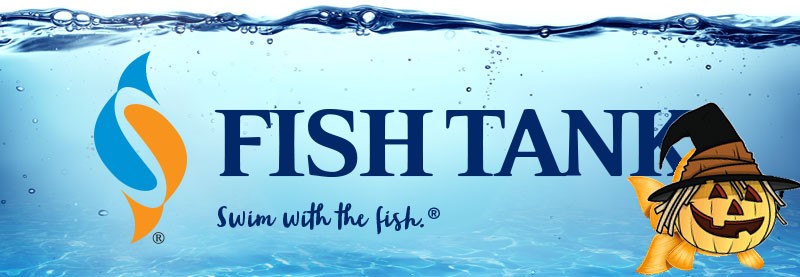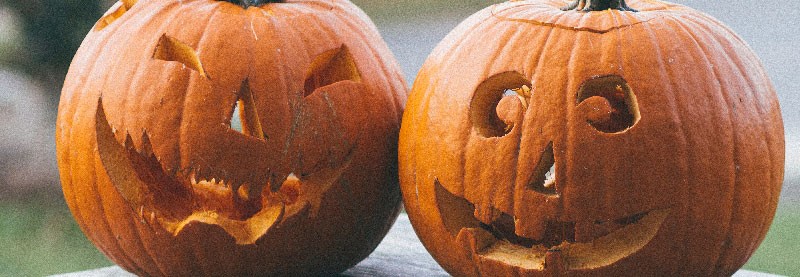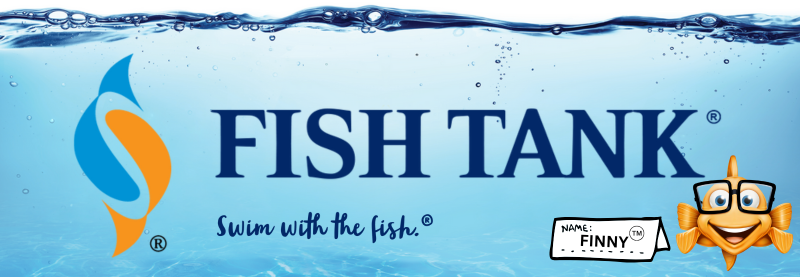Intellectual Property Insights from Fishman Stewart PLLC
Newsletter – Volume 22, Issue 22
Share on Social

Trick-or-Treat: Trademark Infringement or Harmless Halloween Fun?
By Linda M. Callaghan
With the abundant commercialization of the holidays, Halloween has morphed into a month-long celebration allowing trick-or-treaters to attend numerous events to don their costumes. Adults and children alike spend hours perusing the many pop-up Halloween stores and supermarket aisles searching for the “perfect” costume. Consumers have grown accustomed to seeing knock-off costumes based on popular celebrities and movie or book characters. Some of these knock-off costumes, while attempting to skirt intellectual property violations, are providing unexpected humor for shoppers.
Many popular fictional characters may be protected by various forms of intellectual property law. For example, the name of a fictional character from a book or a movie may be a registered trademark, such as DISNEY ALADDIN.
Presumably, to avoid paying licensing fees that would cut into profits, costume makers have taken to the use of descriptive wording to sell costumes. For instance, the below costume packaging advertises a red and white striped shirt and winter hat with big, round, black rimmed glasses as “Where’s the Stripey Dude?” The costume is clearly meant to be Waldo from the WHERE’S WALDO? series of books and movies. The costume maker is trying to avoid a trademark infringement accusation by cleverly describing the costume without actually using the trademark itself on the packaging. Of course, the trademark owner may still bring a lawsuit, and the question will be whether consumers are likely to be confused or believe that Where’s the Stripey Dude? is somehow related to WHERE’S WALDO? or Viacom (the WHERE’S WALDO? trademark owner). Given the lengths that the makers of Where’s the Stripey Dude? have gone to avoid using the WHERE’S WALDO? trademark, it is questionable whether anyone but the most naïve consumer would believe they are purchasing a genuine WHERE’S WALDO? costume. Moreover, is it questionable whether Viacom has any interest in policing potential infringement, since it allowed its WHERE’S WALDO? trademark applications and registrations to lapse.

However, the below knock-off Aladdin costume advertised as “A-Lad-In a Costume,” while quite amusing, seems to be begging for a lawsuit. The use of “A-Lad-In” is much closer to “Aladdin” in pronunciation and appearance, which are factors to consider when assessing whether there is likely to be any consumer confusion, and thus, any trademark infringement.

In any event, these creative knock-off costumes are providing some comic relief for customers while searching for Halloween costumes. We suggest dressing up as anything except an intellectual property infringer!
Have a safe and happy Halloween! For some online trick-or-treating, stop by our swag page and help yourself to some goodies.
Linda is a Partner at Fishman Stewart, specializing in intellectual property law. Linda focuses mainly on trademark and copyright law, including foreign and domestic prosecution and litigation, as well as agreements and assignments. Check out her full bio here.
Published October 27, 2022
Fishman Stewart partner Michael Fishman named to 2022 class of Leaders in the Law by Michigan Lawyers Weekly
Troy, Mich.—October 13, 2022— Intellectual property law firm Fishman Stewart PLLC is pleased to announce that Michael Fishman, a founding firm partner, has been included in the 2022 class of Leaders in the Law by Michigan Lawyers Weekly.
Read the full press release here to learn more about Michael Fishman and Michigan Lawyers Weekly.
Related Content from Fishman Stewart
Despite her pseudo-legal background in Suits, Meghan has been running into one issue after another in her efforts to register the trademark and logo for her new lifestyle company, for now, called “AS EVER”.
By 1930, efforts began in New York to replace Mother's Day with Parent's Day because men were more than just breadwinners. Those efforts didn't catch on, probably because in that era, women often spent more time in the home.
In February, Nike and Skims announced that they will be working together on a new brand, NikeSkims. The co-brand will create a new line of training apparel, footwear, and accessories specifically designed to meet the unique needs of women athletes.
Generally, federal courts have exclusive jurisdiction over copyright cases, and often, this presents an insurmountable paywall for individual artists and small businesses to vindicate their rights, especially where the value of the individual copyrighted works are relatively low.
Dedicated to raising public awareness about the importance of encouraging innovation and creativity throughout the world, the World Intellectual Property Organization (WIPO) annually observes World Intellectual Property Day on April 26 to showcase the role that patents, trademarks, industrial designs, copyrights and trade secrets play in our everyday lives.
Hold onto your foam fingers, sports fans – college sports just got a whole lot more interesting! The latest updates to Name, Image, and Likeness (NIL) rules are making student-athletes bigger than ever, and it’s not just about the game anymore.
Did a federal court in Louisiana recently decide that US copyrights are global rights? It seems so.
L.A.B. Golf aims to protect its innovations, and therefore its market position, owning three patents for its zero-torque design. The question now is whether L.A.B. Golf can withstand the wave of copycat designs.
One of his most famous songs, “Lose Yourself” was recently at the center of a lawsuit. In 2019, Eminem’s publishing company Eight Mile Style sued Spotify claiming that Spotify streamed a number of its musical compositions without proper licenses.
Our latest article tackles three common trademark questions: 1. Can I trademark my own name? 2. Can I trademark the name of a fictional character? 3. Can I trademark the name of a U.S. president or British royal?
IDENTIFYING, SECURING AND ADVANCING CREATIVITY®

















